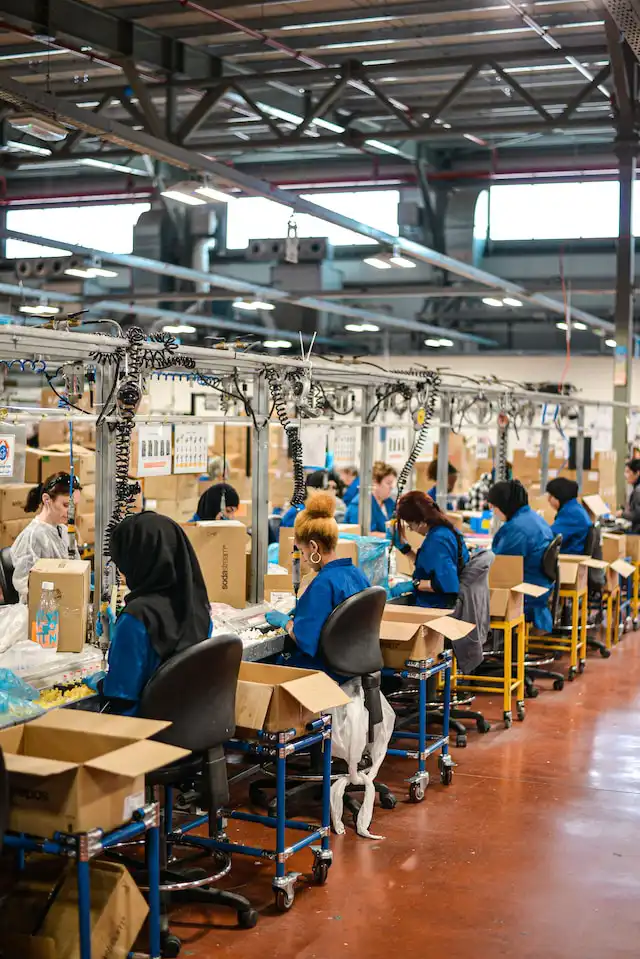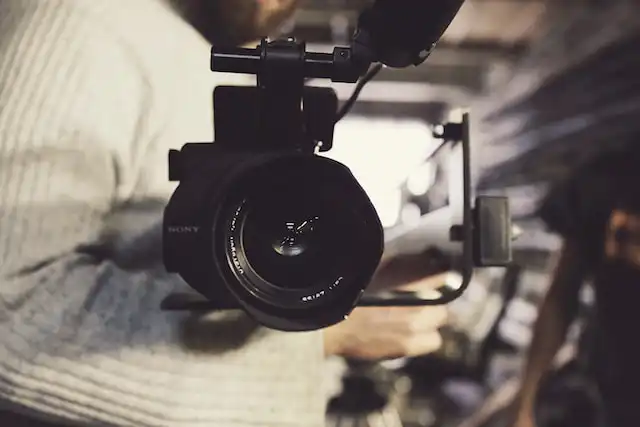
KSA Reusable Water Bottle Market Outlook to 2028
Region:Middle East
Author(s):Shambhavi Awasthi
Product Code:KROD4745
December 2024
84
About the Report
KSA Reusable Water Bottle Market Overview
- The reusable water bottle market in Saudi Arabia is valued at USD 2.4 billion, based on a five-year historical analysis. This market growth is primarily driven by increasing environmental awareness and a shift towards reducing single-use plastic. Government regulations have introduced stringent measures aimed at curbing plastic waste, motivating consumers to adopt reusable alternatives. Furthermore, the growing health-conscious population, particularly among younger demographics, has significantly contributed to the market's expansion.

- In Saudi Arabia, cities like Riyadh, Jeddah, and Dammam are at the forefront of market growth due to high consumer awareness, increased disposable incomes, and stronger environmental policies. The dominance of these cities is also attributed to the presence of major retail chains and e-commerce platforms that promote eco-friendly products. In addition, the introduction of sustainability initiatives and collaborations between local and international brands further strengthens their influence on the market.
- The Saudi government has implemented strict regulations on single-use plastics, particularly under Vision 2030. These policies are reinforced by the Ministry of Environment, Water, and Agricultures push to introduce plastic-free zones, especially in urban markets. The Saudi Standards, Metrology and Quality Organization (SASO) has also introduced standards for eco-friendly products, fostering growth in reusable water bottles. This policy environment is expected to drive significant growth as more citizens seek alternatives to single-use plastic bottles, currently consuming around 40 million single-use plastic bottles annually.
KSA Reusable Water Bottle Market Segmentation
- By Material Type: The KSA reusable water bottle market is segmented by material type into stainless steel, glass, BPA-free plastic, and silicone. Stainless steel bottles dominate this segment due to their durability, long lifespan, and ability to keep liquids at the desired temperature for extended periods. Consumers in urban areas like Riyadh and Jeddah prefer stainless steel bottles for these attributes, and brands have responded by offering sleek and premium designs that appeal to both the fitness and office-going population. Moreover, the increasing focus on sustainability makes stainless steel a preferred choice among eco-conscious consumers.

- By End User: The market is segmented by end user into residential, commercial, institutional, and sports and fitness. The residential segment holds the dominant market share, driven by the adoption of reusable water bottles by households looking to reduce plastic consumption. This segment is especially strong in metropolitan areas, where consumers are increasingly mindful of their carbon footprint and the environmental impact of single-use plastic. Families are shifting toward reusable bottles as a sustainable and healthier option, and this trend is encouraged by local awareness campaigns promoting plastic-free living.

KSA Reusable Water Bottle Market Competitive Landscape
The KSA reusable water bottle market is dominated by both local and global brands, each offering a diverse range of products catering to different consumer preferences. The consolidation of key players in the market highlights the significance of brand reputation and the importance of sustainability initiatives.

KSA Reusable Water Bottle Market Analysis
Growth Drivers
- Increasing Environmental Awareness: In 2024, Saudi Arabia has intensified efforts towards environmental sustainability, with a particular focus on reducing single-use plastic waste. The Kingdom's National Environment Strategy aims to cut plastic waste generation by 85%. This shift has led to a marked increase in demand for reusable water bottles as a sustainable alternative. According to the World Bank, Saudi Arabia's urban population, which constitutes 83.8% of the total population in 2024, is actively adopting eco-friendly practices, with a surge in demand for environmentally conscious products like reusable bottles. This growing environmental awareness has pushed more individuals towards sustainable alternatives.
- Health and Fitness Trends: In 2024, Saudi Arabia's health-conscious population continues to grow, with fitness and wellness trends becoming more prominent. According to data from the Ministry of Health, over 25% of the population is actively engaging in fitness activities, contributing to the increased demand for reusable sports water bottles. These bottles are now becoming a staple in gyms and fitness centers across major cities like Riyadh and Jeddah. The emphasis on hydration as a critical part of fitness regimes also drives the adoption of BPA-free, high-quality reusable bottles, reflecting the publics heightened health awareness.
- Shift Towards Eco-Friendly Products: Saudi Arabia's eco-friendly product market has seen exponential growth, particularly in reusable items. As part of Vision 2030, which emphasizes sustainability, the government has promoted the use of eco-friendly products. Currently, more than 60% of urban consumers are showing preference towards eco-conscious purchases, as evidenced by the increasing availability of reusable bottles in retail stores and online platforms. Eco-friendly alternatives to plastics, such as stainless-steel water bottles, are also gaining traction in the Saudi market, highlighting this important shift in consumer behavior.
Market Challenges
- High Initial Cost of Premium Bottles: Despite growing interest in reusable water bottles, the higher cost of premium options such as stainless steel and smart bottles remains a significant barrier. These products often cost three to four times more than disposable bottles, making them inaccessible to lower-income consumers. Data from Saudi Arabias General Authority for Statistics indicates that disposable income in rural regions is still lower, with the average monthly household income standing at 10,300 SAR, limiting the market for higher-end reusable bottles in these areas.
- Competition from Disposable Bottles: Disposable plastic bottles continue to dominate the market due to their low cost and convenience. While reusable bottles offer long-term value, disposable bottles are more widely available, especially in rural and less developed areas. According to a recent study by the Saudi Ministry of Commerce, more than 55 million disposable plastic bottles are sold annually in Saudi Arabia, posing a significant challenge to reusable bottle adoption. This widespread availability of cheap alternatives undercuts the market share of reusable bottles, particularly in price-sensitive demographics
KSA Reusable Water Bottle Market Future Outlook
The KSA reusable water bottle market is expected to witness robust growth in the coming years, driven by increasing consumer awareness about the environmental impact of single-use plastics. As the government continues to push for sustainability through legislation, the demand for reusable water bottles will expand. The integration of smart technologies, such as temperature tracking and hydration reminders, is expected to further boost product innovation and attract tech-savvy consumers. Additionally, collaborations between international brands and local distributors are likely to broaden the market reach.
Market Opportunities:
-
Corporate and Institutional Partnerships: There is significant potential to collaborate with corporations, educational institutions, and healthcare facilities to supply branded or customized reusable water bottles. This not only supports sustainability goals but also serves as a marketing opportunity for organizations.
-
Expansion into Outdoor and Sports Markets: The growing interest in fitness and outdoor activities in KSA presents an opportunity to cater to this niche with durable, insulated, and ergonomically designed water bottles, specifically targeting athletes and adventure enthusiasts.
Scope of the Report
|
By Material Type |
Stainless Steel |
|
Glass |
|
|
BPA-Free Plastic |
|
|
Silicone |
|
|
By End-User |
Residential |
|
Commercial |
|
|
Institutional |
|
|
Sports and Fitness |
|
|
By Region |
Riyadh |
|
Jeddah |
|
|
Dammam |
|
|
Other Regions |
Products
Key Target Audience
- Manufacturers of Reusable Bottles
- Distributors and Wholesalers
- E-commerce Platforms
- Retail Chains and Supermarkets
- Sports and Fitness Retailers
- Government and Regulatory Bodies (Saudi Food and Drug Authority, Ministry of Environment, Water and Agriculture)
- Investor and Venture Capitalist Firms
- Environmental Organizations and NGOs
Companies
Players mentioned in report
- Hydro Flask
- Swell
- Klean Kanteen
- Tupperware Brands Corporation
- CamelBak
- Nalgene
- Contigo
- Thermos LLC
- Corkcicle
- Sigg Switzerland AG
- Yeti Holdings, Inc.
- Ello Products
- Santeco Co. Ltd.
- Smug
- Lifefactory, Inc.
Table of Contents
1. KSA Reusable Water Bottle Market Overview
1.1 Definition and Scope
1.2 Market Taxonomy
1.3 Market Growth Rate
1.4 Market Segmentation Overview
2. KSA Reusable Water Bottle Market Size (In USD Bn)
2.1 Historical Market Size
2.2 Year-On-Year Growth Analysis
2.3 Key Market Developments and Milestones
3. KSA Reusable Water Bottle Market Analysis
3.1 Growth Drivers
3.1.1 Increasing Environmental Awareness
3.1.2 Health and Fitness Trends
3.1.3 Shift Towards Eco-Friendly Products
3.2 Market Challenges
3.2.1 High Initial Cost of Premium Bottles
3.2.2 Competition from Disposable Bottles
3.3 Opportunities
3.3.1 Innovation in Smart Bottles
3.3.2 Expansion in Rural Markets
3.4 Trends
3.4.1 Rise of Smart Water Bottles
3.4.2 Customization and Personalization
3.4.3 Popularity of Stainless Steel and BPA-Free Plastic Bottles
3.5 Government Regulations
3.5.1 Plastic Waste Reduction Policies
3.5.2 Standards for Eco-Friendly Products
4. KSA Reusable Water Bottle Market Segmentation
4.1 By Material Type (In Value %)
4.1.1 Stainless Steel
4.1.2 Glass
4.1.3 BPA-Free Plastic
4.1.4 Silicone
4.2 By End-User (In Value %)
4.2.1 Residential
4.2.2 Commercial
4.2.3 Institutional
4.2.4 Sports and Fitness
4.3 By Region (In Value %)
4.3.1 Riyadh
4.3.2 Jeddah
4.3.3 Dammam
4.3.4 Other Regions
5. KSA Reusable Water Bottle Market Competitive Analysis
5.1 Detailed Profiles of Major Companies
5.1.1 Hydro Flask
5.1.2 Swell
5.1.3 Klean Kanteen
5.1.4 CamelBak
5.1.5 Nalgene
5.1.6 Thermos LLC
5.2 Cross Comparison Parameters (No. of Employees, Headquarters, Inception Year, Revenue)
5.3 Market Share Analysis
5.4 Strategic Initiatives
5.5 Mergers and Acquisitions
5.6 Investment Analysis
5.7 Venture Capital Funding
6. KSA Reusable Water Bottle Market Regulatory Framework
6.1 Plastic Waste Reduction Policies
6.2 Compliance Requirements
6.3 Certification Processes
7. KSA Reusable Water Bottle Future Market Size (In USD Bn)
7.1 Future Market Size Projections
7.2 Key Factors Driving Future Market Growth
8. KSA Reusable Water Bottle Future Market Segmentation
8.1 By Material Type (In Value %)
8.2 By End-User (In Value %)
8.3 By Region (In Value %)
8.4 By Delivery Model (In Value %)
9. KSA Reusable Water Bottle Market Analysts Recommendations
9.1 TAM/SAM/SOM Analysis
9.2 Customer Cohort Analysis
9.3 Marketing Initiatives
9.4 White Space Opportunity Analysis
Disclaimer
Contact Us
Research Methodology
Step 1: Identification of Key Variables
The first step in researching the KSA reusable water bottle market involves mapping out all relevant stakeholders. This stage includes gathering data from government reports, industry publications, and proprietary databases. The goal is to identify the key factors that influence market growth, such as consumer behavior, regulatory frameworks, and sustainability trends.
Step 2: Market Analysis and Construction
Historical data on sales volumes, product penetration, and consumer preferences are compiled to construct a robust analysis of the market. A thorough assessment of the competitive landscape is also undertaken, focusing on the differentiation strategies employed by leading brands.
Step 3: Hypothesis Validation and Expert Consultation
Insights from market experts and industry insiders are gathered through in-depth interviews. These consultations help validate the initial market hypotheses and ensure the accuracy of the projections. Opinions from professionals in retail, manufacturing, and environmental organizations are included to provide a comprehensive outlook.
Step 4: Research Synthesis and Final Output
The final step involves synthesizing data from multiple sources and verifying findings through quantitative and qualitative analyses. The report is reviewed by market specialists to ensure that it presents an accurate reflection of the KSA reusable water bottle market and its future potential.
Frequently Asked Questions
01. How big is the KSA Reusable Water Bottle Market?
The KSA reusable water bottle market is valued at USD 2.4 billion, driven by the rising consumer shift towards eco-friendly alternatives and government efforts to reduce plastic waste.
02. What are the challenges in the KSA Reusable Water Bottle Market?
Challenges include the high cost of premium products, competition from single-use plastic bottles, and low awareness in rural areas about the benefits of reusable bottles.
03. Who are the major players in the KSA Reusable Water Bottle Market?
Key players include Hydro Flask, S'well, Klean Kanteen, CamelBak, and Nalgene. These companies dominate the market with their innovative product designs, eco-friendly materials, and strong brand presence.
04. What are the growth drivers of the KSA Reusable Water Bottle Market?
Growth drivers include increased consumer awareness about the environmental impact of plastics, government regulations aimed at reducing plastic waste, and growing health consciousness among the population.
05. What are the trends in the KSA Reusable Water Bottle Market?
Key trends include the rise of smart water bottles, customization options for consumers, and the growing popularity of stainless steel and BPA-free plastic bottles.
Why Buy From Us?

What makes us stand out is that our consultants follows Robust, Refine and Result (RRR) methodology. i.e. Robust for clear definitions, approaches and sanity checking, Refine for differentiating respondents facts and opinions and Result for presenting data with story

We have set a benchmark in the industry by offering our clients with syndicated and customized market research reports featuring coverage of entire market as well as meticulous research and analyst insights.

While we don't replace traditional research, we flip the method upside down. Our dual approach of Top Bottom & Bottom Top ensures quality deliverable by not just verifying company fundamentals but also looking at the sector and macroeconomic factors.

With one step in the future, our research team constantly tries to show you the bigger picture. We help with some of the tough questions you may encounter along the way: How is the industry positioned? Best marketing channel? KPI's of competitors? By aligning every element, we help maximize success.

Our report gives you instant access to the answers and sources that other companies might choose to hide. We elaborate each steps of research methodology we have used and showcase you the sample size to earn your trust.

If you need any support, we are here! We pride ourselves on universe strength, data quality, and quick, friendly, and professional service.















